House lawmakers leave DC until September with government shutdown deadline looming
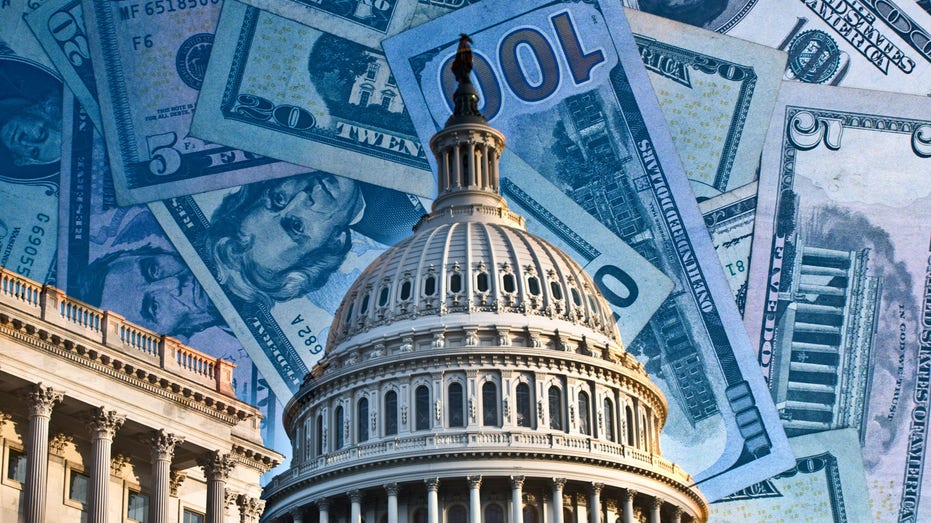
The House of Representatives is officially off to an early start for its summer recess – a five-week period when lawmakers are back home in their districts focusing on local issues and their own re-election bids. They will return on Sept. 9 – exactly three weeks from the deadline to fund the government in the next fiscal year. That means the GOP-run House will have to compromise with the Democrat-controlled Senate or risk a partial government shutdown, with some federal offices shuttered and potentially thousands of government employees furloughed. It’s all but certain at this point that a short-term extension of the current year’s funding, known as a “continuing resolution” (CR), will be needed to avoid a partial shutdown. BIDEN ENDS BID FOR SECOND TERM IN WHITE HOUSE AS HE DROPS OUT OF HIS 2024 REMATCH WITH TRUMP “I’ve always said we’d have to do a CR,” House Appropriations Committee Chairman Tom Cole, R-Okla., told reporters earlier this week. “And then whoever wins the election will make the decision. Do you want a deal by the end of the year, or do you want to kick them to the next Congress? I hope, my advice to whoever wins, would be do it by the end of the year.” House GOP leaders had laid out an ambitious plan to finish their 12 individual appropriations bills before the current recess, momentum that was derailed by intraparty disagreements about where Republicans’ starting point should be. GOP rebels pushed for spending bills rife with culture war amendments on issues like transgender surgeries and abortion, arguing that it was the Republicans’ right as a majority to leverage from the most conservative starting point. Rank-and-file Republicans, however, were uneasy about being forced to take politically unpopular votes on measures that would not become law anyway, with no chance of passing the Democrat-controlled Senate. So far, six of 12 bills have passed the House floor, while the Senate has not passed any. TRUMP SAYS BIDEN ‘IS NOT FIT TO SERVE’: ‘WHO IS GOING TO BE RUNNING THE COUNTRY FOR THE NEXT 5 MONTHS?’ The main discussion when lawmakers return in September will likely surround what a CR would look like in terms of length and what, if any, riders are attached. Allies of former President Trump have pushed for a CR to extend into the new year in the hopes that Republicans will take back the White House and Senate. But senior GOP lawmakers expressed concern that it would add unnecessary drama to what’s already expected to be an action-packed first 100 days of the new administration. Some Trump allies are now also pushing for any CR to be paired with the Safeguarding American Voter Eligibility Act (SAVE Act), a GOP-backed bill that would add a proof-of-citizenship requirement to the voter registration process. “We have been in session week after week for months after Speaker Johnson passed a two part omnibus, fully funding the Biden/Harris agenda in May…For what? Messaging? When the reality that we ALL know is that we will be forced to vote on a CR by Sept 30th which is the government funding deadline,” Rep. Marjorie Taylor Greene, R-Ga., wrote on X. “And since we all know a CR is coming you would think we would be working on one that makes an impact like attaching the SAVE Act for example because our elections matter. But nope, we are up here voting at 9 pm tonight on bills that won’t see the light of day in Schumer’s Senate for nothing.” KAMALA HARRIS’ PRESIDENTIAL CAMPAIGN RAISES NEARLY $50 MILLION WITHIN HOURS OF BIDEN ENDORSEMENT In his comments to reporters earlier this week, however, Cole signaled that he was not enthusiastic about the idea. “I haven’t really thought about it yet, it’s not a big deal to me. But again, if it can’t pass the Senate, it isn’t going to be an effective CR,” Cole said. “So a real CR, you know, I’m more interested actually in disaster relief. That’s something that I think the two sides can come together on.” When reached for comment earlier this week about GOP frustrations over the spending process, a spokesperson for Speaker Mike Johnson, R-La., told Fox News Digital: “The House has made significant progress in advancing FY25 appropriations bills. The House Appropriations Committee has diligently moved all 12 bills out of committee and the House has passed 75% of government funding for the upcoming fiscal year, while the Senate has yet to even consider a single appropriations bill. The House will continue its successful effort to responsibly fund the government for FY25 when it returns from its district work period.”
J-K: 1 Pakistani intruder killed, Indian soldier martyred, 4 jawans injured as Army foils BAT attack in Kupwara
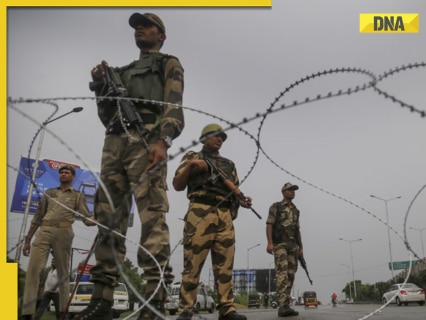
The encounter started in Kupwara district’s Kumkari area during an anti-terrorist operation. It is the second such incident recorded in three days.
PM Modi chairs NITI Aayog meeting today, know who attended, who skipped from opposition parties
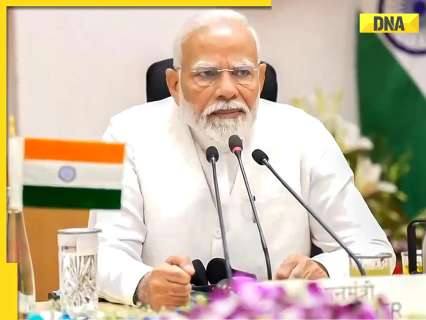
The council, the apex body of NITI Aayog, includes all state chief ministers, lieutenant governors of Union Territories, and several Union ministers. Modi is the Chairman of NITI Aayog.
‘Was allowed to speak only for…’: Mamata Banerjee walks out of PM Modi-led NITI Aayog meet
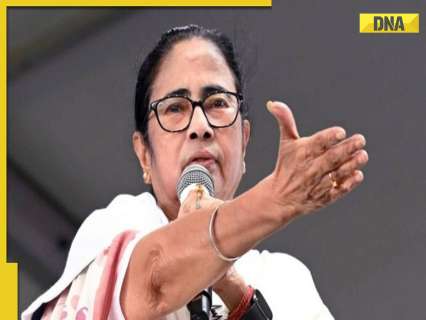
NITI Aayog meeting is being chaired by Prime Minister Narendra Modi.
Delhi-Ghaziabad-Meerut RRTS Corridor: Big update on 82-km section of Namo Bharat, check details

There will be 25 stations on the Delhi-Meerut RRTS Corridor.
Newsom urges Oakland officials to tighten ‘extreme’ policy that restricts police chases
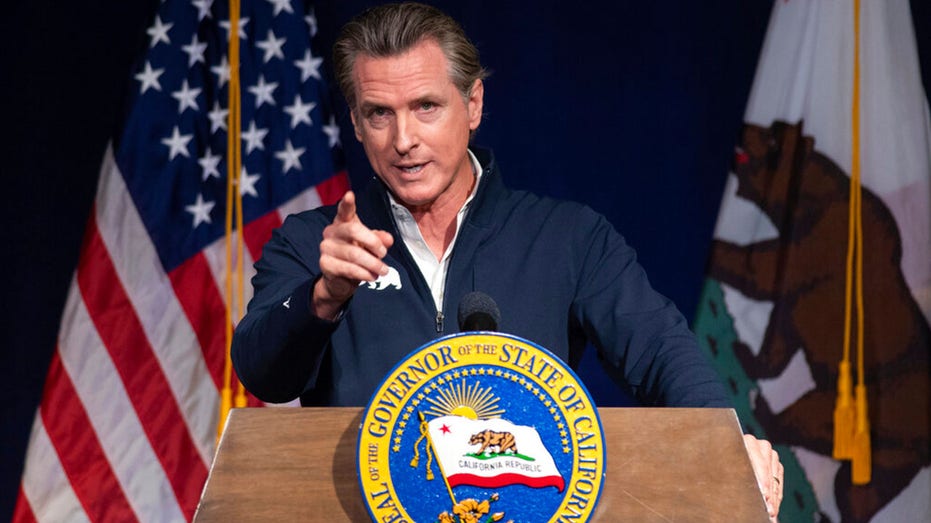
California Gov. Gavin Newsom, a Democrat, called on Oakland officials Friday to amend an “extreme” policy that generally only allows police to chase suspected criminals in cases of “violent forcible crimes.” The governor sent a letter to Oakland Mayor Sheng Thao, the Oakland City Council and the Oakland Police Commission urging them to reconsider the Oakland Police Department (OPD) policy that limits officers’ ability to pursue suspects. “Although some California jurisdictions allow vehicle pursuits for only certain crimes (e.g., felonies), Oakland is an outlier by imposing exceptional restrictions on OPD’s ability to police criminal activity, generally permitting pursuits only for ‘violent forcible crimes,’ as defined in OPD’s policy, and crimes involving firearms,” Newsom wrote. The letter said that, unlike most other jurisdictions in the state, local police in Oakland are prohibited from pursuing people suspected of committing various felonies and any misdemeanor, including those that are violent, as well as other offenses that endanger public safety, such as reckless driving, sideshow activity and driving under the influence of drugs or alcohol. GOV NEWSOM ORDERS HOMELESS ENCAMPMENTS TORN DOWN ACROSS CALIFORNIA: ‘NO MORE EXCUSES’ “I am mindful of the sensitivities around vehicle pursuits, which can be dangerous to police, suspects, and innocent bystanders,” the governor wrote. “California’s Commission on Peace Officer Standards and Training recognizes and addresses this in its standard-setting guidance. But there is also extreme danger to the public in allowing criminals to act with impunity, and the reckless driving associated with sideshows and other criminal acts is a significant threat to public safety — as witnessed regularly by the public in viral videos and news coverage.” This comes after Newsom’s recent move to increase California Highway Patrol (CHP) in Oakland to conduct surge operations targeting organized crime, sideshows, carjackings and other criminal activity. Newsom said the move quickly produced several arrests of suspects accused of committing these crimes. Two days after the governor’s announcement, the CHP used ground and airborne assets to conduct a surge operation targeting sideshows. Several vehicle pursuits through that operation led to five felony arrests, eight DUIs, the recovery of eight stolen vehicles and the seizure of two guns. “In the course of the CHP’s operations, however, they have observed, based on their professional law enforcement experience and expertise, certain dynamics that are contributing to Oakland’s public safety challenges,” Newsom wrote in the letter. “In particular, the CHP has brought to my attention that they observed criminals often fleeing with impunity because it’s common knowledge that the Oakland Police Department’s (‘OPD’) pursuit policy allows vehicle pursuits in only very limited circumstances.” Newsom said CHP observed suspects attempting to avoid arrest by using the same routes, meaning that the suspects knew where OPD would stop chasing them. But, the governor said, the suspects were unable to avoid the six pursuits initiated by CHP, which had a number of resources available to them, including air support. CA SCHOOL DISTRICT SUES NEWSOM OVER BILL BANNING SCHOOLS FROM NOTIFYING PARENTS OF CHILD’S GENDER IDENTITY CLICK HERE TO GET THE FOX NEWS APP “Any policy on vehicle pursuits must be clear-eyed in balancing the risks and benefits involved,” Newsom’s letter read. “Because of Oakland’s public safety challenges and the degree to which OPD’s pursuit policy is an outlier among California law enforcement agencies, I support the recent action by the City Council to direct a review of this policy. “I urge you to reconsider whether OPD should be permitted to pursue suspects in more circumstances to improve public safety in your city and to establish a process to evaluate whether OPD is making full use of its authority, including that granted under the existing pursuit policy, to protect public safety and enforce the law,” he continued. Newsom concluded his letter by saying he is committed to improving public safety in Oakland and across California. He said there have been some recent improvements in public safety, but that officials “owe it to our communities to continue to search for solutions.”
Maduro’s greatest test? All you need to know about Venezuela’s election
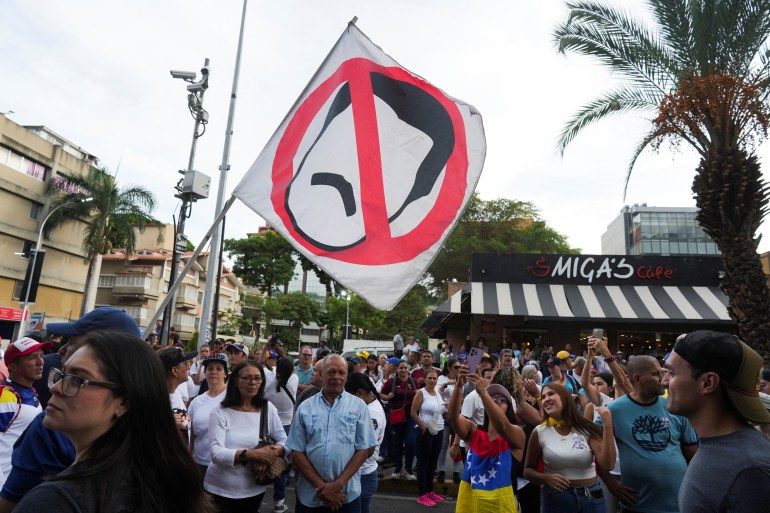
On Sunday, voters in the South American nation of Venezuela will take part in what may be one of the most consequential elections in the country’s modern history. After 11 years in power, President Nicolas Maduro is facing steep odds as he seeks a third term against opposition candidate Edmundo Gonzalez Urrutia. Polls show Maduro trailing Gonzalez by nearly 40 points, as voters express exhaustion over Venezuela’s economic crisis and political repression. But critics question whether Maduro will accept defeat if he is indeed trounced at the polls. The socialist leader has been accused of wielding his power to suppress potential rivals, arresting some and barring others from holding office. Who are the candidates, what developments have we seen so far, and under what circumstances will voting take place? We answer these questions and more in this brief explainer. Supporters of opposition candidate Edmundo Gonzalez in Caracas wave a flag showing a cartoon of President Maduro’s face crossed out [Alexandre Meneghini/Reuters] When is the election taking place? The election will take place on July 28, the birthday of the late Venezuelan President Hugo Chavez, Maduro’s mentor. What do the pre-election polls show? Maduro appears to be lagging behind his rival Gonzalez by a seemingly insurmountable margin. The polling firm ORC Consultores shows Maduro with 12.5 percent support, compared with a whopping 59.6 percent for Gonzalez. Another poll from the data firm Delphos and Andres Bello Catholic University showed Maduro with a slightly higher approval rating, about 25 percent. But he was again far behind Gonzalez, who pulled in more than 59 percent support in that poll as well. Why is Maduro so unpopular? Maduro has long struggled to muster the popularity of his predecessor, Chavez. Since the mid-2010s, Venezuela’s economy has been in dire straits, as the price of its main export, oil, cratered. The economic crisis triggered hyperinflation and severe economic strain. An exodus of people started to leave the country in search of opportunities elsewhere. Some critics blamed Maduro and his allies for corruption and economic mismanagement as well. Sanctions imposed by the United States — in response to alleged human rights abuses and democratic backsliding — have compounded the economic crisis, according to experts. Laura Dib, the Venezuela programme director at the Washington Office on Latin America (WOLA), a research and rights advocacy group based in the US, told Al Jazeera that people in the country are desperate for an improvement to the crushing economic circumstances. “The minimum wage in Venezuela can be around $130 per month, but what a family needs just to cover their basic needs is around $500,” she said. Venezuela’s President Nicolas Maduro holds the sword of independence hero Simon Bolivar during his final campaign rally in Maracaibo, Venezuela, on July 25 [Isaac Urrutia/Reuters] How many people have left the country? Perhaps the best indicator of how dire the economic situation has become is the number of people leaving the country. According to the United Nations refugee agency (UNHCR), more than 7.7 million have left the country since 2014, in one of the largest instances of mass displacement in modern history. About 2,000 people continue to leave each day. Some experts fear that number may spike if Maduro claims victory in a third successive election. Who is running? Maduro, the 61-year-old successor of former President Chavez, is seeking a third six-year term as the candidate for the United Socialist Party. He seeks to continue Chavez’s legacy of offering social programmes to the poor and taking an antagonistic stance towards the US. Facing off against Maduro is a group of opposition parties that call themselves the Unitary Platform coalition. The coalition brings together an array of political views, but its defining goal is to bring Maduro’s time in power to a close and improve relations with the West. By winning sanctions relief and boosting investments, officials in the Unitary Platform hope to improve conditions in Venezuela, allowing members of the diaspora to return home. The opposition is represented on the ballot by Gonzalez, a 74-year-old former diplomat. For his part, Maduro has painted the opposition as stooges of foreign powers who would privatise the social programmes that many poor residents rely on for economic support. Venezuelan opposition leader Maria Corina Machado and presidential candidate Edmundo Gonzalez participate in a closing campaign rally in Caracas, Venezuela, on July 25 [Enea Lebrun/Reuters] What happened last time Maduro ran? The opposition largely sat out the 2018 election in protest of what it said was a biased electoral system. Maduro ultimately won that election with more than 67 percent of the votes. But groups like the Organization of American States warned that the election failed to meet the standards for a “free, fair, transparent and democratic process”, and observers noted that voter turnout was at a record low. Has this year’s election process been fair? In short, no. While the opposition is running with Gonzalez at the top of the ticket, he was not the coalition’s first choice to take the lead. In fact, he wasn’t even the second choice. Gonzalez was selected only after the government barred the popular opposition figure Maria Corina Machado from competing in the election, as well as Corina Yoris, who was initially named as her replacement. Other opposition figures have been detained in the lead-up to the vote, on what critics consider sham charges. In January, Venezuela’s Supreme Court upheld a decision to bar Machado from holding public office for 15 years. How does the government defend those actions? The government has defended its decision by alleging that opposition figures like Machado were involved in efforts to overthrow Maduro and encouraged US sanctions against Venezuela. While Machado remains widely popular, those charges lean into anxiety over a history of US support for efforts to undermine the government in Caracas and install a new one more favourable towards Washington. Maduro and his allies have also accused Machado of being corrupt. Guards stand outside of the National Electoral Council headquarters in Caracas, Venezuela,
Kamala Harris shifts tone on Gaza, but advocates say US voters want more
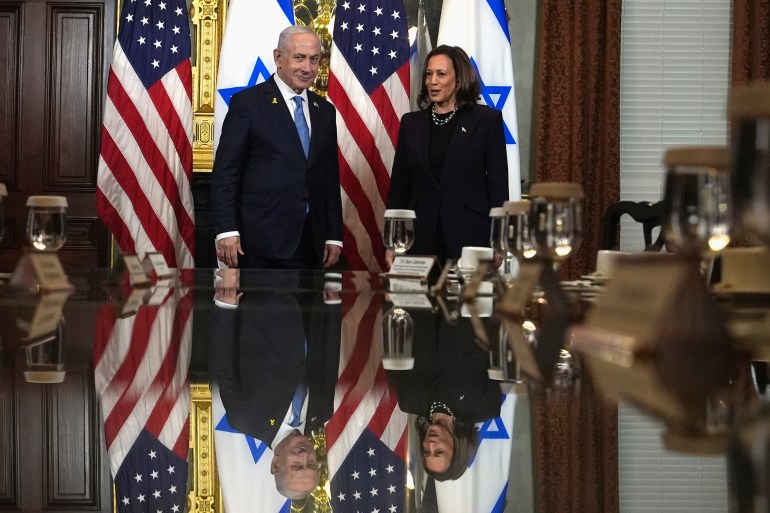
Washington, DC – Vice President Kamala Harris says she will “not be silent” in the face of Palestinian suffering, as Israel’s war in Gaza rages on. But Palestinian rights advocates want to know exactly what that means for United States foreign policy. The vice president — and the Democrats’ likely nominee for the presidency — emphasised the plight of Palestinians in Gaza after meeting with Israeli Prime Minister Benjamin Netanyahu on Thursday. Nevertheless, she pledged ongoing support for Israel. Activists say expressing sympathy for Palestinians without pursuing a meaningful shift away from the US’s policy of unconditional military and diplomatic support will not help Harris win back voters alienated by President Joe Biden’s approach to the war. “Without an actual commitment to stop killing the children of Gaza, I don’t care about her empathy for them,” said Eman Abdelhadi, a sociologist at the University of Chicago. She stressed that the US bears “responsibility” for the atrocities committed against Palestinians. “To be empathetic to someone that you’re shooting in the head is not exactly laudable. We don’t need empathy from these people. We need them to stop providing the weapons and the money that is actively killing the people that they’re supposedly empathising with.” Moreover, while Harris’s comments have been characterised as a shift away from Biden’s rhetoric, critics point out the vice president did not articulate any new policy positions. What did Harris say? After holding talks with Netanyahu on Thursday, Harris delivered a televised statement on the conflict where she reasserted her “unwavering commitment” to Israel and promised to always ensure that the country can “defend itself”. The vice president then pivoted to describing the horrific conditions in Gaza without naming Israel as the party responsible for the humanitarian crisis there. “I also expressed with the prime minister my serious concern about the scale of human suffering in Gaza, including the death of far too many innocent civilians,” Harris said, calling the war “devastating”. “The images of dead children and desperate, hungry people fleeing for safety — sometimes displaced for the second, third or fourth time — we cannot look away in the face of these tragedies. We cannot allow ourselves to become numb to the suffering, and I will not be silent.” She also voiced support for Biden’s multi-phased ceasefire proposal to achieve an end to the war and release Israeli captives in Gaza. Israel and Hamas have been negotiating indirectly for months to finalise the agreement, but a solution has remained elusive so far. At least on the surface, Harris’s tone appeared like a departure from Biden’s pro-Israel statements. “Harris created distance from Biden on Gaza by emphasizing Palestinian suffering,” a Washington Post headline read after the vice president’s comments. However, Hazami Barmada, an Arab American activist who has been organising protests in the US capital to bring awareness to the situation in Gaza, said that the vice president’s public statement of sympathy “does not make a difference”. Barmada pointed out that Secretary of State Antony Blinken has said he sees his own kids in the faces of the children in Gaza. Still, Blinken’s department has continued to approve billions of dollars in weapons for Israel. “So no, I don’t think empathy is enough,” Barmada told Al Jazeera. “We have had on our television screens genocide, ethnic cleansing, apartheid, illegal occupation, violence, all types of atrocities happening against Palestinians for 76 years. We need to move past empathy into a place of action before it’s too late.” Vice President Kamala Harris and Prime Minister Benjamin Netanyahu meet at the Eisenhower Executive Office Building in the White House complex in Washington, DC, on July 25 [Julia Nikhinson/AP Photo] Harris’s rise Harris appears set to inherit the Democratic nomination from Biden, who stepped out of the presidential race on Sunday and instead endorsed the vice president. With no serious opposition, Biden had won the overwhelming majority of votes in the Democratic primaries. But hundreds of thousands of people across the country chose the “uncommitted” option on Democratic primary ballots to express opposition to the president’s Gaza policy. The uncommitted movement has articulated three main policy demands: achieving an enduring ceasefire, imposing an arms embargo on Israel and lifting the siege on Gaza. Tariq Habash, a former Biden administration appointee, acknowledged the change of tone from Harris and called it “refreshing”. In January, he resigned from the Department of Education in a display of public opposition to US support for the war. But Habash likewise said that Harris should be prepared to follow her rhetoric with action. “What we really need, nine and a half months in, is a change in policy, a change in approach, so that we can end the unnecessary and indiscriminate violence that has continued every single day under President Biden,” Habash told Al Jazeera. “It’s still early, so we don’t know exactly what her plan or approach will be, but based on what she said yesterday, I don’t think substantively we heard a shift or any real departure from what the president has already said or done.” After all, Harris is a key member of the Biden administration, which has been unflinchingly supportive of Israel. On Thursday, White House spokesperson John Kirby said the vice president has been a “full partner” in overseeing US policy on the war. Harris’s record Harris, a former senator, also has her own long pro-Israel record. Days into her Senate tenure in 2017, Harris co-sponsored a measure to condemn a United Nations Security Council resolution that denounced Israel’s illegal settlements in the occupied West Bank. She also addressed the American Israel Public Affairs Committee (AIPAC) later that year, at a time when many left-wing politicians were distancing themselves from the pro-Israel lobby group. “Having grown up in the [San Francisco] Bay Area, I fondly remember those Jewish National Fund boxes that we would use to collect donations to plant trees for Israel,” Harris told an AIPAC conference in 2017. For years, Palestinian historians and activists have accused the Jewish National
How deep is the divide between Israel’s military and its government?
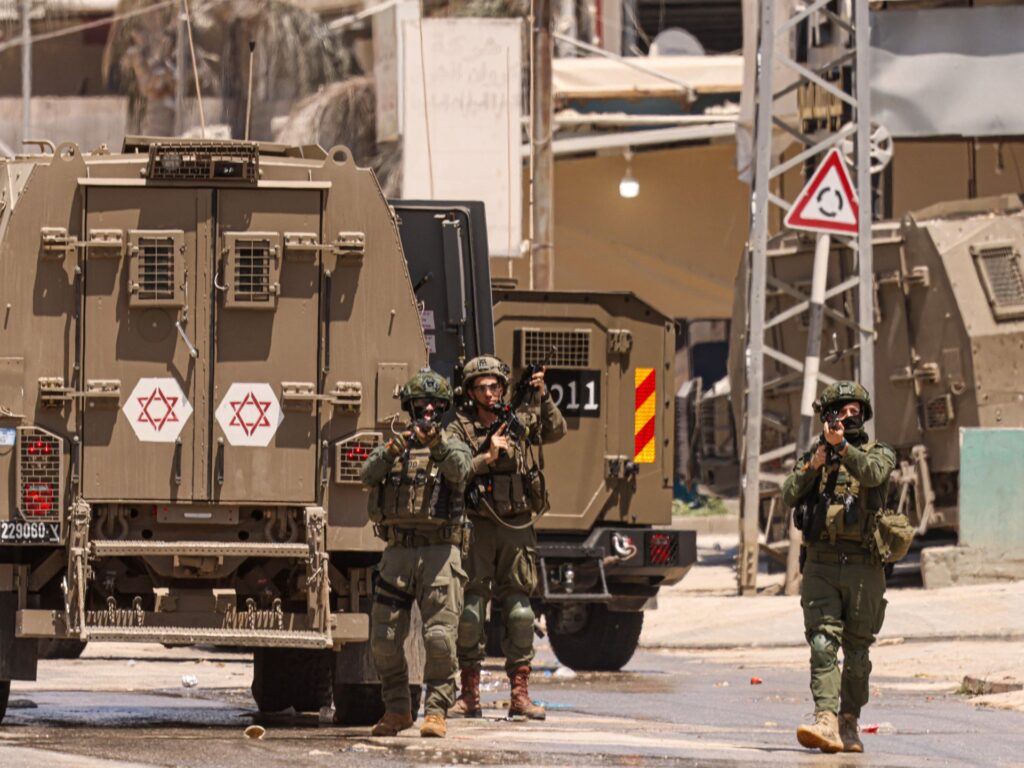
In Gaza, the Israeli military continues on the offensive, and in the United States, Prime Minister Benjamin Netanyahu has spent the past week courting more support for Israel’s assault on the Palestinian enclave. But that apparently shared purpose does not reflect the reality: a growing divide between the generals and the government. And analysts say it means that the initial Israeli unity when it came to the war on Gaza is a thing of the past. The differences emerge in the open on occasion. Most recently, they have centred on the conscription of Israel’s ultra-Orthodox yeshiva students – the military generals, and many secular Israelis, want them to be drafted like other Jews, but ultra-Orthodox parties opposed to conscription are a vital part of Netanyahu’s cabinet. Of perhaps more consequence to Gaza, however, are differences over the conduct of the war, and how to end it. In June, the Israeli army spokesperson Daniel Hagari said, “Whoever thinks we can eliminate Hamas is wrong.” The problem is that one of those people is Netanyahu himself, who has clearly made the destruction of Hamas one of his conditions for ending a war that has now killed almost 40,000 Palestinians. That criticism is part of a wider dissent among some leading Israelis – and even Netanyahu’s own defence minister, Yoav Gallant, has questioned whether there are any plans for ending the war, which began in October. Netanyahu has reserved his own criticism for the army, sharply criticising plans the military had announced, also back in June, for daily “tactical pauses in fighting” to facilitate aid delivery. An Israeli official at the time was quoted as saying that Netanyahu had made clear to the military that it was “unacceptable”. The differences between the military and Israel’s right-wing political establishment are hardly new, and are particularly rife at the moment because of the presence of the far right within the government. Over the last 20 years or so, far-right settler movements have moved from an outlier on the fringes of Israeli politics to the forefront of Israeli political and institutional life. Former supporters of Jewish movements that are banned as “terrorist” groups now sit in senior ministerial positions, with no attempt to repudiate their former affiliations. In addition to an energised and often aggressive base, the far right’s representatives dominate many of Israel’s institutions, including the police and education system, with their influence over Israel’s traditionally secular army growing more and more apparent. Rise of the far right By repeatedly threatening to walk away and collapse Israel’s electorally vulnerable governing coalition, ultranationalist National Security Minister Itamar Ben-Gvir and Finance Minister Bezalel Smotrich have come to exert an effective veto over national policy. That includes any potential ceasefire deal in Gaza – and Netanyahu has chosen to ignore those in the West calling for him to end what is an unpopular war internationally, instead fearing the wrath of the far right more. Netanyahu has his own legal troubles, and losing the protection his current position affords him could be costly. The far right’s critical view of the army isn’t new. Rather, it stems from the military’s role in the 2005 ejection of the illegal Israeli settlements in Gaza, a move violently resisted by the enclave’s settlers, and their continuing – if sometimes fractious – relationship in the occupied West Bank, officially administered by the army since 1967. “It seems strange, I know,” Eyal Lurie-Pardes of the Middle East Institute said, “but the settler movement has repeatedly accused the military of anti-Jewish bias in the West Bank”. And some of that suspicion goes beyond differences over war policy. “With its emphasis on balanced genders and the rights of the LGBTQ community, the army is often criticised by settlers and the ultra-Orthodox for what they see as its progressive culture,” Lurie-Pardes said. According to independent Israeli analyst, Nimrod Flaschenberg the religious Zionist and far right’s “march through the institutions” spurred by the 2005 Gaza withdrawal saw a gradual infiltration into many of the country’s establishments, from the media, to education and the judiciary, but the slow-moving hierarchies of the army are a work in progress. Their influence in the military is growing, however. In a recent report published by The Guardian, the British newspaper suggested that about 40 percent of the graduates from the army’s infantry officer schools come from hardline religious Zionist communities more aligned with the worldview of Ben-Gvir and Smotrich than they do either the ultra-Orthodox Haredim, who avoid military service, or the senior commanders of the Israeli military’s secular old guard. “You can see this influence in both Gaza and the West Bank,” Flaschenberg said, referring to the areas – the latter in particular, that Israeli settlers see as theirs by divine right. “You have these lower-ranked and mid-range officers repeating these almost genocidal religious chants, while either turning their backs on, or carrying out horrific rights abuses. All the while, their generals denounce such actions, while doing nothing to prevent them.” One such notable denunciation came earlier in July from the outgoing Israeli general, Yehuda Fox, who has served in the Israeli army since 1987. He publicly condemned the settler violence, which has claimed dozens of Palestinians in the West Bank during the course of the war, calling it a “nationalist crime”. And yet, ultimately, criticism from the armed forces of Israeli actions in the West Bank remain few and far between, and the military itself conducts near-daily raids on Palestinian cities, towns and villages, and has even attacked them from the air since October. The regular ill-treatment of Palestinians under occupation is also rarely, if ever, criticised by the army’s senior leadership. As for the war in Gaza, both the army and the government have been fully supportive of the widespread destruction of Gaza and accepting of the killing of thousands of Palestinians, with the differences largely over tactics and future plans. At war with the army At the beginning of July, Gallant told the public the army needed 10,000 additional
J-K: 3 jawans injured as security forces, terrorists exchange gunfire in Kupwara’s Kumkari area
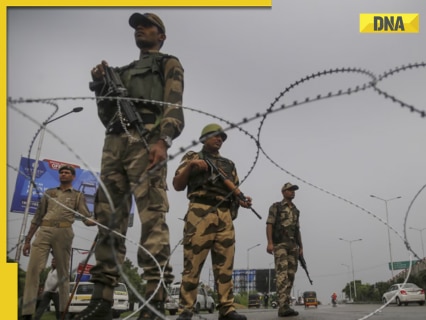
The encounter started in Kupwara district’s Kumkari area during an anti-terrorist operation. It is the second such incident recorded in three days.

